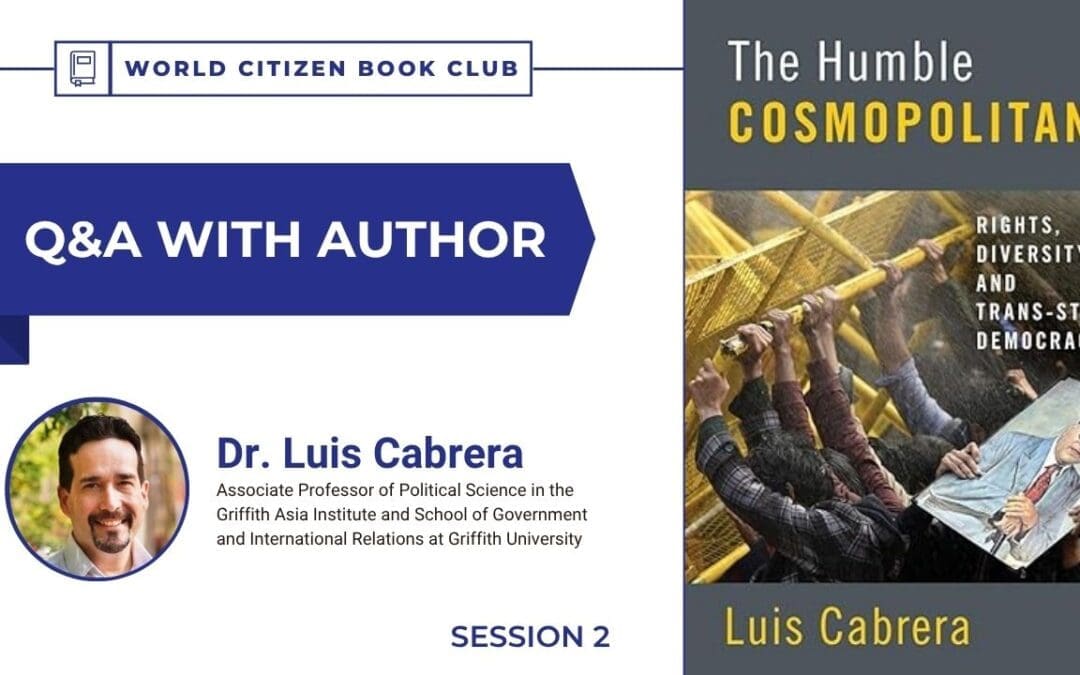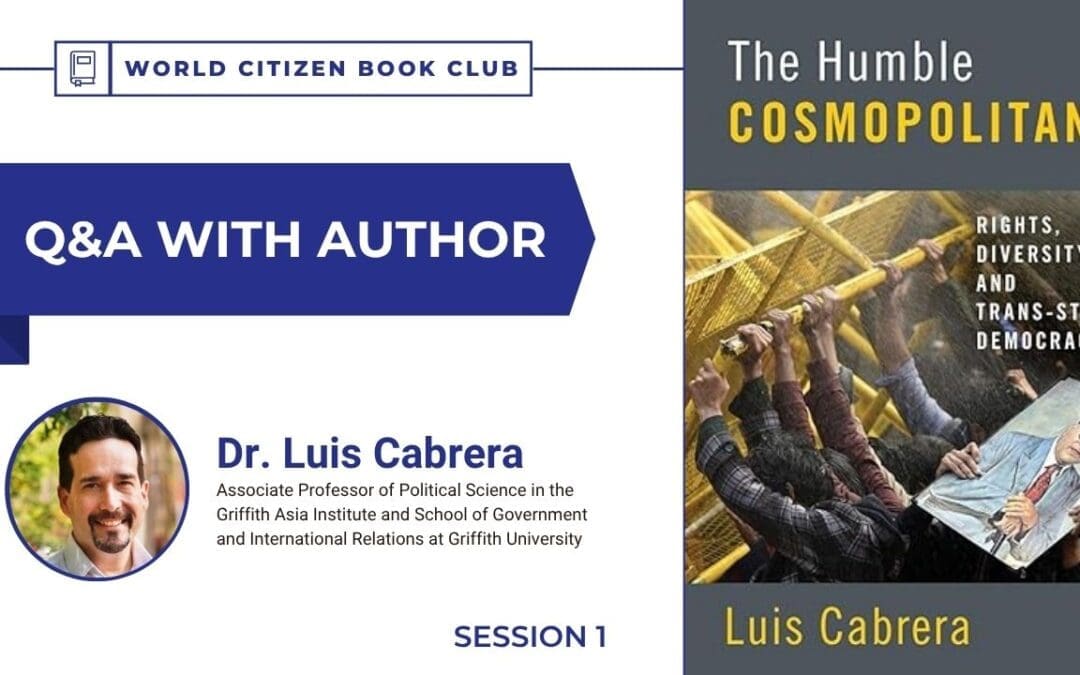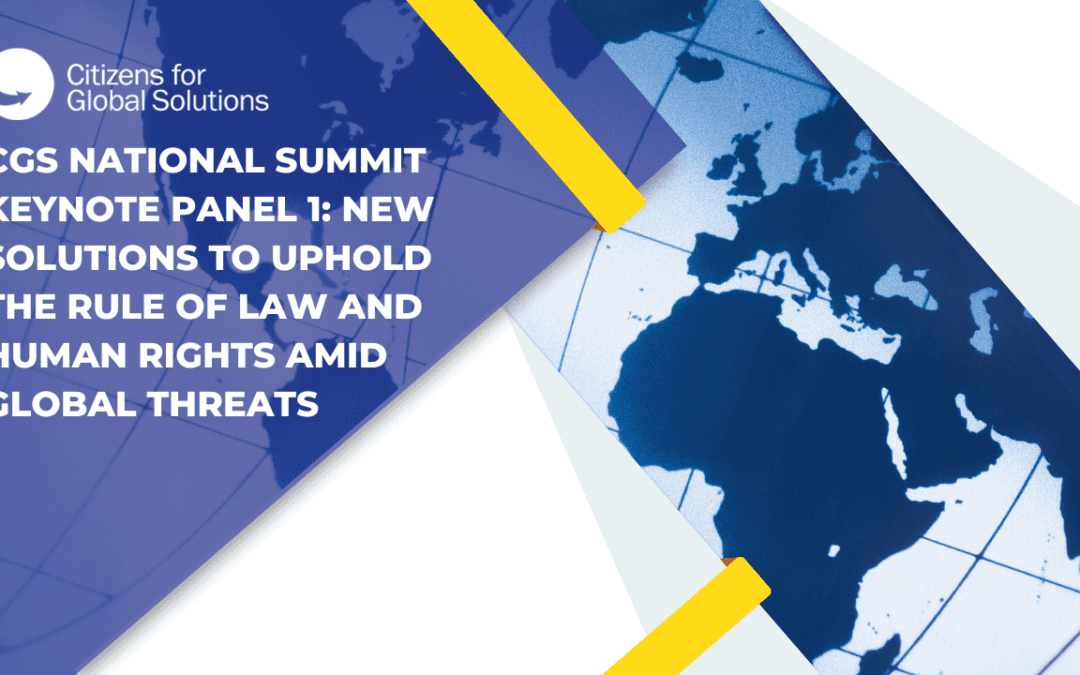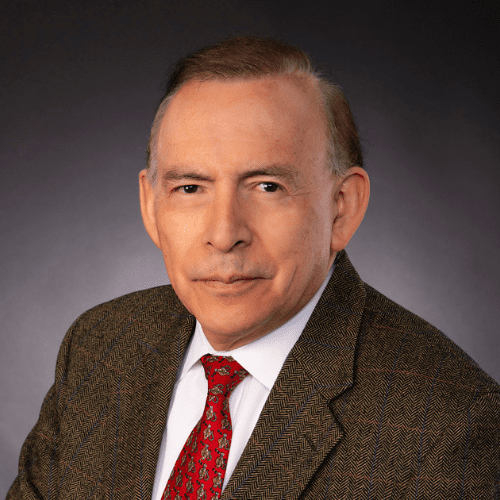
by CGS | Sep 18, 2025 | Past Event
Watch Session one discussing Chapters 1 & 2, of the book, The Future in the Past: Reconstructing Article 109(3) of the UN Charter Towards The San Francisco Promise to Constitutionalise the United Nations and International Law.
About the Book:
A forgotten clause in the UN Charter, the “San Francisco Promise,” offers a way forward to reform the United Nations from its current democratic deficit of the Security Council and its veto power. As a compromise, the permanent five members of the UN Security Council agreed to a clause that allowed for Charter Review, ten years after the UN came into force. This “San Francisco Promise” was activated in 1955, but was later breached and abandoned. The review conference endowed in the Charter, and legally still valid, could pave the way for a process of writing a constitution for the UN, allowing it to reinvent itself to better face current and future global challenges. Thus help transform the UN into a global governance fulfilling the objectives set out in the UN Charter’s preamble.
About the Author:
Dr. S.M. Sharei, whose specialization is public international law and the UN Charter, is the founding Executive Director and President of the Center for United Nations Constitutional Research (CUNCR). In addition to his PhD and LLM in International Law, he holds a MS degree in Computer Science and a BSc in Applied Economics and Management. Under the direction of Dr. Sharei, CUNCR has embarked on research and dialog focusing on global governance. Research and seminar programs include series on “Climate Justice, Democracy and Governance” which have fostered regular result-oriented interaction with academics, politicians, practitioners, and particularly the youth. The advent of Youth Climate Ambassador (YCA) program, conceived by Dr. Sharei, has been a great educational and movement building project, bringing talented youth activists from every continent to network towards action and advocacy in building a sustainable planet. Further, strengthening of the United Nations, through Security Council democratization and the UN Charter constitutional transformation have been the apex of Dr. Sharei’s research towards global good governance.
His thesis on upholding the “San Francisco Promise” and the (re)discovery of the legality and potentials of the Article 109(3) UN Charter review convention, is instrumental for United Nations transformation, from illusive governance to a democratic and effective government in delivering peace, environmental security, and meeting new global challenges. Under his direction, CUNCR has initiated a “How to Assemble Parliamentary Assemblies” series on institutional capacity-building and cooperation amongst regional inter- parliamentary institutions (IPIs), towards expanded competency and people’s participation in regional and global governance.
For over 30 years, Dr. Sharei has been an activist, focusing on civil society and NGO activities in the areas of nuclear disarmament, UN reform, the International Criminal Court (ICC), and democratic global governance. He was a member of the governing council of the World Federalist Movement (WFM)/Institute for Global Policy (IGP) when WFM/IGP was the convenor of the coalition for the International Criminal Court (ICC).

by CGS | Aug 3, 2025 | Past Event
About the Book
The Humble Cosmopolitan explores how an “institutional global citizenship” approach to cosmopolitanism could promote political humility globally. It draws on the work of Indian constitutional architect and social activist B.R. Ambedkar to challenge the notion that sovereign states are empowered to dismiss rights-based challenges from outsiders or their own populations—even as they serve as the designated guarantors of human rights.
About the Author
Luis Cabrera is Associate Professor in the School of Government and International Relations and Griffith Asia Institute at Griffith University in Brisbane, Australia. He has published widely on issues of global justice and ethics, including global citizenship, migration and individual rights, and on the development of more democratically accountable regional and global political institutions. He has conducted related field research in India, Mexico, Southeast Asia, several European Union countries, Turkey, and the United States.

by Citizens for Global Solutions | Jul 23, 2025 | Past Event
About the Book
The Humble Cosmopolitan explores how an “institutional global citizenship” approach to cosmopolitanism could promote political humility globally. It draws on the work of Indian constitutional architect and social activist B.R. Ambedkar to challenge the notion that sovereign states are empowered to dismiss rights-based challenges from outsiders or their own populations—even as they serve as the designated guarantors of human rights.
About the Author
Luis Cabrera is Associate Professor in the School of Government and International Relations and Griffith Asia Institute at Griffith University in Brisbane, Australia. He has published widely on issues of global justice and ethics, including global citizenship, migration and individual rights, and on the development of more democratically accountable regional and global political institutions. He has conducted related field research in India, Mexico, Southeast Asia, several European Union countries, Turkey, and the United States.

by Citizens for Global Solutions | May 16, 2025 | Past Event
During this high-level, live-streamed public panel at the 2025 National Summit, Citizens for Global Solutions (CGS) partners came together to highlight their efforts in driving action during turbulent times. They showcased innovative approaches to addressing escalating global threats and shared how their collaboration with CGS strengthens these initiatives. The panel also offered valuable insights into the evolving landscape of global governance—exploring both the pressing challenges and emerging opportunities ahead.
Moderator: Alyn Ware, Program Director, WFM-IGP; Co-Founder, Legal Alternatives to War (LAW not War)
Speakers:
- Yasmina Gourchane, Advocacy Officer, Coalition for the International Criminal Court (CICC)
- Tess Graham, Legal Advisor, Global Justice Center
- Saul Kenny, Communication Advisor at the UN Charter Reform Coalition
- Alexandre MacIsaac, Executive Director, WFM-Canada
- Dan Perell, Representative to the United Nations, Baha’i International Community
- Karam Singh, Deputy Director, Integrity Initiatives International (III)

by CGS | Mar 29, 2025 | Past Event
Watch the first of two sessions in CGS’s World Citizen Book Club to discuss World Parliament: Governance and Democracy in the 21st Century (2nd edition) by Andreas Bummel and Jo Leinen.
For the first time, humanity is united in a global civilization facing shared challenges like war, poverty, climate change, and inequality—problems that surpass the capacity of current national and international systems. Despite setbacks from autocracy and nationalism, the global push for freedom continues. A third democratic transformation—toward global democracy—is needed. Central to this vision is the creation of a democratic world parliament. This book examines the idea’s history, relevance, and path to realization. The second edition includes major updates, reflecting recent global events and expanding the original content by about 20 percent.
About the Authors
Andreas Bummel is co-founder and director of Democracy Without Borders and of the Campaign for a United Nations Parliamentary Assembly. He has dedicated his career to the promotion of global democracy and world federalism. From 1998 to 2018 he was a Council member of the World Federalist Movement, an international NGO that promotes the rule of law, world peace, and federalism. He was trained in business administration, studied law and worked at a management consultancy firm. He was born in Cape Town, South Africa, in 1976.
Jo Leinen served as a member of the European Parliament from 1999 to 2019. He chaired the environmental committee and the committee on constitutional affairs. From 2011 to 2017 he was president of the European Movement, an organization advocating for a democratic and enlarged European Union. From 1997 to 2005 he was presiding the Union of European Federalists that is dedicated to the promotion of European political unity. From 1985 to 1994 he was minister of the environment in the German state of Saarland. He graduated in law and was born in Bisten, Germany, in 1948.

by CGS | Mar 14, 2025 | Past Event
This virtual intergenerational panel was sponsored by Citizens for Global Solutions, Trinity Washington University, and the Sisters of Notre Dame de Namur. The panel explored violence against women and girls and barriers to justice in DR Congo and Nigeria and contemplated how the Beijing Declaration can be better implemented to achieve transformative solutions.
The panel brought together youth and seasoned women’s rights advocates from the US, DR Congo, and Nigeria to take an intergenerational approach to directly confronting gender specific violence against women and promoting justice and peace.
Speakers:
- Sr. Isabelle Izika, Sisters of Notre Dame de Namur NGO representative at the UN
- Chantal Faida, Director at the Centre de Formation Elikya ya Mboka DR Congo
- Amaka Ilodigwe, Director of the Women and Child Justice Initiative Nigeria
- Lauren Woodhouse, Global Affairs student at Trinity Washington University and CGS Fellow
- Cinthya Calderon-Hernandez, student at Trinity Washington University and CGS Fellow
- Sr. Ann Howard, Sisters of Notre Dame de Namur, Director of Campus Ministry at Trinity Washington University
Moderator: Dr. Allen Pietrobon, Professor of Global Affairs at Trinity Washington University
This was an official Parallel Event at the NGO CSW69 Forum, which took place in parallel with the 69th Session of the Commission on the Status of Women (CSW69) in New York from March 10 through 21. The Commission on the Status of Women is a UN body that monitors the implementation of the Beijing Declaration and Platform for Action, considered the most progressive blueprint for advancing women’s rights worldwide.
In 2025, CSW69’s main focus was reviewing the implementation of the Beijing Declaration and Platform for Action, including an assessment of current challenges that affect the implementation of the Platform for Action and the achievement of gender equality and the empowerment of women.































